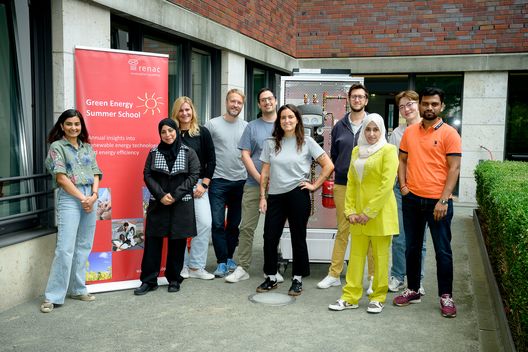Certified Renewable Energy Project Developer: Biogas


This online programme provides a detailed introduction of what biogas systems are, how they work, what they are for, and how they are planned and implemented.
It covers the most important economic aspects of renewable energy project planning and describes how the most common public policy support mechanisms work. The programme also looks into how banks view the risks related to renewable energy projects, and examines the parameters they use to assess any new project’s bankability in order to decide whether they will get on board and finance it. To this end, the programme includes a checklist for project developers to ensure that potential partner banks receive all the data they require in the way they require it.
PROGRAMME STRUCTURE
Introductory courses
The programme includes access to short introductory courses on energy and electricity topics to provide participants with the opportunity to learn or revise the basics. These courses are not mandatory and are not covered in the exam.
Core courses
The programme contains three core courses on the essential financial considerations of renewable energy projects. These courses are mandatory and are a part of the exam.
- Renewable energy feasibility assessment and investment valuation
- Policy Frameworks for RE Power Generation
- Renewable energy project finance
Biogas project planning electives
The elective specialisation of this programme in biogas systems includes one optional course introducing the various aspects of what biogas is, how it is obtained and the various types of biogas plants, and one mandatory course on the planning of medium-sized biogas plants.
Receive a reminder one week before the registration deadline.
After completing this programme, you will be able to:
- calculate the relevant economic parameters of a renewable energy project;
- decide which support mechanisms are applicable;
- prepare the data required for a bankability assessment; and
- define the necessary steps from planning to O&M for a medium-sized biogas plant.
Upon successful finalisation of the training, you will receive a RENAC Certificate.
Duration: 6 months
Study time: About 130 hours
Training language: English or Spanish
Detailed course description: A detailed course description is available for download here.
E-learning platform: Access the demo course on our e-learning platform.
Price: €1,309.00*
Contact
Cintia Guerrero
Online Academy Manager
Tel:+49 30 587 08 70 03
Email: onlineacademy(at)renac.de
*incl 19 % of German VAT
Highlights
- Flexibility to study at any time and from any location
- RENAC content expert and learning platform technical support
- Moderated discussion forum for students
- Live lectures
- Multimedia learning materials
- Self-assessments, assignments and final exam
- Certified by the Staatliche Zentralstelle für Fernunterricht - ZFU (German Authority for Distance Learning)
- RENAC certificate upon successful finalisation of the programme
- We offer discounts for our alumni, group bookings, and multiple purchases. Contact us for further details.
____________________________________________________________________________________
Contact
Cintia Guerrero
Online Academy Manager
Tel:+49 30 587 08 70 03
Email: onlineacademy(at)renac.de
Lecturers

Current position:
Albrecht Tiedemann heads the Green Hydrogen, Climate Policy, and Renewables Grid Integration division at RENAC. He manages international capacity development programmes on green hydrogen, energy transition, and Power-to-X (PtX) for applications professionals in the public and private energy sectors. As an experienced educator and trainer, he designs and implements blended learning seminars covering green hydrogen project development, renewable PtX pathway assessment, grid integration of photovoltaic and wind power, and wind farm economics and technology. Albrecht also moderates and chairs panel discussions, workshops, seminars, and conferences.
Professional experience:
Albrecht has been highly involved in integrating renewable energies into the German energy supply system and conducting strategic energy transition analyses for the German energy sector. Before joining RENAC, he was a project director at the German Energy Agency (dena) GmbH, where he also worked as a consultant for the German Federal Ministry of Economics & Technology, the Federal Ministry for the Environment, the European Commission, and enterprises in the energy sector. Furthermore, he was the chairperson of the Offshore Wind Standing Committee of the Federal Government and the Forum Offshore Wind Energy and Nature Conservation. Albrecht was also a scientific assistant for the Federal Environmental Agency of Germany, responsible for developing environmentally friendly technologies.
Education:
He holds an Engineer for Environmental Technology degree from the Technical University of Berlin.


















